Randi Zuckerberg's Blog, page 5
November 2, 2018
Radio Recap: Tech of the Future

MPOWERD Luci Light
In the past century, life expectancy was less than 35 years, 94% of the global population lived in extreme poverty, and less than 20% of the population was literate. Fast forward to the present day where human life expectancy is over 70 years, less than 10% of the global population lives in extreme poverty, and over 80% of people are literate. And onto the future where it’s estimated that by 2050 there will be 9 billion people to feed, clothe, transport, employ, educate and, of course, create new tech for.
Ideally tech of the future will be accessible to everyone. Currently new technology is transforming the world, improving global human welfare everyday. Take the self-driving car, which takes aim at dramatically reducing the number of car-related injuries per year (that number is currently at 1.25 million casualties). Or even the smartphone, which 80% of adults on earth will have by 2020. So even in the most remote village in the world, we have better mobile communication than the president did 25 years ago.
But these are all part of a bigger whole. What about future technology that is changing the world for a smaller market? Here with me to discuss future tech is Easton LaChappelle, founder and CEO of Unlimited Tomorrow, which uses 3D scanning, printing, and AI, to create realistic and advanced robot limbs for amputees. Also with me is Seungah Jeong, President and CEO of MPOWERD, inflatable solar lights that helps those without access to electricity.

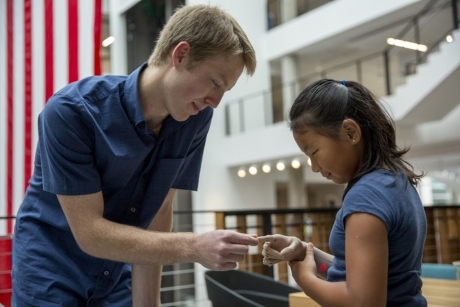
October 31, 2018
Radio Recap: Devices for the World

Mpowerd Luci Light
In the past century, life expectancy was less than 35 years, 94% of the global population lived in extreme poverty, and less than 20% of the population was literate. Fast forward to the present day where human life expectancy is over 70 years, less than 10% of the global population lives in extreme poverty, and over 80% of people are literate. And onto the future where it’s estimated that by 2050 there will be 9 billionpeople to feed, clothe, transport, employ, educate and, of course, create new tech for.
Ideally tech of the future will be accessible to everyone. Currently new technology is transforming the world, improving global human welfare everyday. Take the self-driving car, which takes aim at dramatically reducing the number of car-related injuries per year (that number is currently at 1.25 million casualties). Or even the smartphone, which 80% of adults on earth will have by 2020. So even in the most remote village in the world, we have better mobile communication than the president did 25 years ago.
But these are all part of a bigger whole. What about future technology that is changing the world for a smaller market? Here with me to discuss future tech is Easton LaChappelle, founder and CEO of Unlimited Tomorrow, which uses 3D scanning, printing, and AI, to create realistic and advanced robot limbs for amputees. Also with me is Seungah Jeong, co-founder of MPOWERD, inflatable solar lights that helps those without access to electricity.


October 24, 2018
Radio Recap: Playing the Long Game

Inc. Magazine’s Alyssa Satara recently shared the forward-thinking ideas of the Millennial, Forbes’ 30 to Watch Under 30, med-tech founder of NeoLight—a company that aims to bring new technology to neonatal care. Because med-tech is such a highly regulated space it cannot implement innovative solutions quite the same way other tech industries can, but it’s not only med-tech that needs to stay on top of changing tides—all businesses must pull out the stops to stay relevant in their market.This is called ‘playing the long game’ and it’s one of the most important assets entrepreneurs can have. Playing the long game means, first and foremost, building a great team—from resources to co-founders to employees.
Entrepreneurs also have to have— and lead with— patience. Which means not shying away from regulations, changing trends, or the possibility of the 10-years it may take to disrupt an industry to become an ‘overnight success.’
Here with me to discuss the how –to and importance of playing the long game in their own company is Vivian Shen, Co-Founder and CEO of Juni Learning, Melinda Epler, Co-Founder and CEO of Change Catalyst and co-founder of Tech Inclusion. Also Erica Keswin author of Bring Your Human to Work: 10 Surefire Ways to Design a Workplace That is Good for People, Great for Business, and Just Might Change the World.
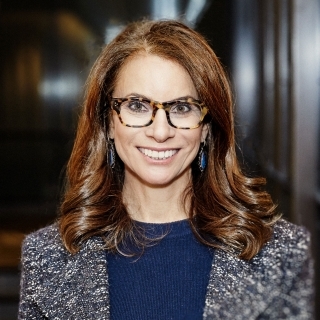





October 17, 2018
Radio Recap: Live Entertainment in VR

From Johnny English to Weird Al Yankovic, virtual reality is set to take over cinemas this fall with Oculus VR’s new platform, Venues. Created to deliver all sorts of entertainment experiences like live events, sports, concerts, and comedy shows Venues is like streaming TV —but only in VR. The first Venues events were a live concert at Colorado’s Red Rocks Amphitheater and a Gotham Comedy show streamed in partnership with live events platform NextVR. This is all part of Oculus’ broader entertainment push to make VR both a social experience and a viable medium that goes beyond gaming and live events. Now that viewers can get a front-row seat to live shows from the comfort of their home (as long as they have a VR headset) what does VR event entertainment look like?
Here with me to discuss using VR entertainment experiences that go beyond 2D are Eric Gersen and Jessica Morgan of the Upright Citizens Brigade’s new Broadway-style musical, YOUR TOWN, which will be broadcast worldwide on the Oculus platform by NextVR. Also joining the show via phone are Bradley Sullivan and Adam Krause from the award-winning VR 360º horror short, GAGS: THE TERROR SURROUNDS YOU.


October 10, 2018
Radio Recap: Tech + Society
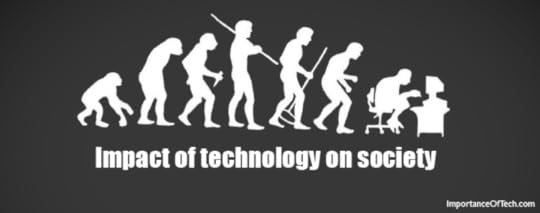
According to Wikipedia, a ‘technology society’ refers to the cyclical co-dependence, co-influence, and co-production tech and society have upon one other. While it’s no surprise that technology influences society’s values, technology is influenced by our values, too. Our daily needs, comfort and ease depend on tech so the demands for newer, advanced technology keep rising. However, tech has definitely caused concerns. From damage to the environment to threats to our personal wellbeing to overuse and abuse, the proper use of technology is a constant debate.
While it’s impossible to know exactly how technology has impacted our lives in the present, it’s even more difficult to figure out how it will impact the future. Whether we’re aware of it or not, when we use technology we’re making an unconscious shift in society. So instead of asking ‘how does technology effect society’ the question we should be asking is ‘how is society effecting technology?’
Here with me to discuss the crossroads of tech and society is Roderick “Roddy” Schrock, the Director of Eyebeam, a Brooklyn-based art-meets-tech nonprofit directed at transforming society. Also, on the phone from the UK, is author and journalist Will Storr. Will’s most recent book “Selfie: How the West Became Obsessed and What It’s Doing to Us” is out now.

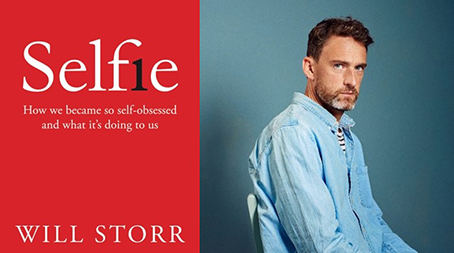
October 3, 2018
Radio Recap: AI + Venture Capital + Diversity

A recent report from global boutique investment bank, Drake Star Partners, revealed that, in 2017, venture capital investments toward the American artificial intelligence and machine-learning industry reached $6 billion while global investments in AI companies grew to over $12 billion. The report also estimates a compound annual growth rate of almost 40% from 2016 to 2025 for the global AI market.
From a total global revenue of $4.8 billion last year, AI companies are expected to post revenues of $38 billion in 2022, and $90 billion in 2025 which make artificial intelligence one of the fastest growing, most lucrative industries attracting investments from VC funds and heavy-hitting tech firms like Microsoft and Google. But as fast growing and successful of industries that AI and machine learning are, why aren’t more women represented in the field?
WIRED magazine worked with Montreal startup Element AI to estimate diversity of leading machine learning researchers and found that only 12% were women.So how can AI companies attract the right VC funding for their start-up and how can more women be represented in artificial intelligence?
Here with me to discuss AI, venture capital, and diversity is Jean-Francois Gagne, founder and CEO of Element AI, Francisco Dao, program manager at AI NexusLab, and Loren Busby, CFA and private equity investor.
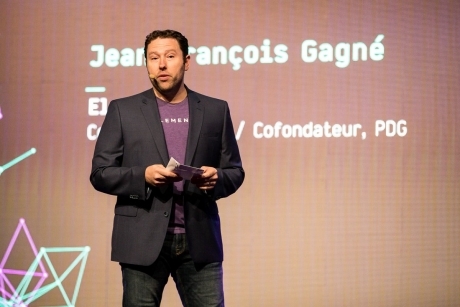


September 26, 2018
Radio Recap: Gender Pay Gap in Sports

Working women earn 80% as much as their male counterparts, which is almost .81cents for every dollar men earn. But when it comes to professional athletes that number falls a lot lower.
Take the U.S. women’s national soccer team, which generates more revenue than the men’s squad and has taken home the World Cup three more times than the men’s league—which has taken home ZERO—yet in 2016 the women’s soccer team filed a wage-discrimination complaint against U.S. Soccer for being paid one-quarter of what the men make. For the first time since 2012 women have been shut out of Forbes annual ‘World’s Highest Paid Athletes’ list. Tennis has long been the only way women get on this list,but Serena Williams fell $5 million short of the $23 million cutoff.
In basketball, the WNBA’s TV deal with ESPN is worth $25 million per year, while the NBA earns $2.5 billion, or 100 times as much. The lack of visibility on TV means less endorsement deals. But times they are a-changing. The World Surf League announced this month that, beginning in 2019 season, every WSL event will award equal prize money for male and female athletes. This historic announcement marks the World Surf League as the first and only US-based global sports league to offer equal prize money.
Here with me to discuss the gender pay gap in sports is 6-time world surfing champion, Steph Gilmore, the first female CEO of the World Surfing League, Sophie Goldschmidt, and International Female Super Bantamweight World Boxing Council Champion, Heather ‘Heat’ Hardy.



September 19, 2018
Radio Recap: Women Helping Women
 According to a recent University of Phoenix study, more than half of Americans have not worked for a company with a female CEO, but there is statistical data that shows more women succeed when there are higher up female execs.
According to a recent University of Phoenix study, more than half of Americans have not worked for a company with a female CEO, but there is statistical data that shows more women succeed when there are higher up female execs.
Take the 2015 Columbia and University of Maryland’s business school’sstudy of America’s 1,500 biggest companies. Setting out to find the reasons why women were under-represented in the top tiers of management, they discovered that when a woman had been appointed as a chief executive—or another high-ranking executive position—other women were more likely to be promoted to senior positions as well. But when a company was headed by a man, it was much harder for more than one woman to make it into senior management.
The research found that the probability of a second woman becoming a senior manager fell by 51% when the chief executive was male. And what about women rights? UN Women—a United Nations organization dedicated to gender equality and the empowerment of women worldwide—alongside other gender equality advocates, influenced national policies regarding women’s political participation in 58 countries last year. Like in Honduras where women’s rights were put on the election ballot for the very first time.
Here with me to discuss women helping women is Aldijana Sisic, Chief of the UN Trust Fund to End Violence against Women, at UN Women. Also here is Neeta Rastogi Singh, COO of Activant Capital Group.

Aldijana Sisic

Neeta Rastogi Singh
September 12, 2018
Radio Recap: Journalism in 360VR

Virtual reality is giving a never-before dreamed dimension to journalism by immersing audiences inside situations they’d otherwise be unable to experience. Instead of reading or watching 2D news, viewers can dive under melting Antarctic ice, visit the aftermath of a hurricane, or witness the savage destruction of war-torn countries all while raising viewer engagement and awareness.
One of the first waves of 360 VR journalism was in 2015 when The New York Times sent Google Cardboard headsets to more than a million subscribers. Their 360 VR video on prisons highlighted the impact incarceration has on families.
This showcased storytelling in a whole new light, creating compelling stories with strong characters to portray the nuances of daily living. This year Al Jazeera’s new immersive studio, Contrast VR, brought Yemen to audiences with their war-ravaged, Yemen’s Skies of Terror, which is now up for numerous awards for its engaging storytelling.
While immersive journalism is still in its infancy, it runs the risk of being underutilized and forgotten—yet 360 VR has an extraordinary ability to create change in ways that should not be ignored.
Here with me to discuss the importance of 360VR is Zahra Rasool Editorial Lead of Al Jazeera’s ContrastVR, and Veda Shastri producer of The New York Times’ Daily 360.

Zahra Rasool

Veda Shastri
September 5, 2018
Radio Recap: Democratizing Blockchain
When people think of blockchain some think of digital currency Bitcoin because they both seem to go hand in hand in the news. But there’s actually a lot more use cases for blockchain technology that aren’t centered around the currency space. Blockchain is a public ledger that automatically records and verifies transaction. Actually almost any asset can be traded by using the same distributed ledger technology—or DLT— that powers cryptocurrency.
Due to the increasing need for transparency and the verifiable register of transaction data, more identity structures that leverage blockchain technology are being created. Since blockchain operates through a decentralized platform it is essentially fraud resistant.Through blockchain we can cryptographically authenticate that we really did eat at the restaurant we’re reviewing and can immediately verify that our online date is indeed a farmhouse-owning CEO.
Not only can blockchain eliminate online fraud, DLT can also be used to automatically execute agreements once a set of specified conditions are met. These “smart contracts” have the potential to reduce paperwork in many sectors from education to potentially one day fixing the ongoing issues with democratic voting.
Today I discussed the potential of democratizing blockchain with Joshua Broggi, founder and director of blockchain university Woolf and Santiago Siri, Founder of Democracy Earth Foundation, a Y-Combinator backed non-profit building incorruptible digital governance technology.





